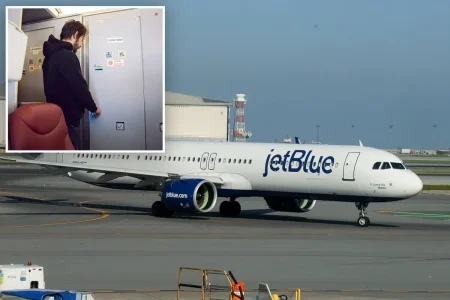Italy’s Controversial Pet Tax Sparks Debate on Urban Cleanliness vs. Animal Rights
In the picturesque Italian city of Bolzano, gateway to the stunning Dolomite mountains, a contentious proposal has unleashed a storm of debate between dog lovers and cleanliness advocates. Provincial Councilor Luis Walcher has introduced a measure that would impose a €1.50 ($1.75) daily tax on tourist dogs visiting the city, with local pet owners facing an annual fee of €100 ($117.04). The proposal, slated to take effect in 2026 if approved, resurrects a similar tax that was repealed in 2008. The intention behind this “canine tariff” is straightforward yet divisive: to address what Walcher describes as the “serious problem” of dog waste littering Bolzano’s charming streets. “The only filth on our city streets is dog waste,” Walcher stated firmly, arguing that cleaning costs should fall on pet owners rather than the broader community. Part of the collected funds would also go toward developing dedicated dog parks, potentially offering a compromise to pet owners feeling targeted by the measure.
This proposed pet tax doesn’t exist in isolation. It follows another controversial requirement in Bolzano mandating DNA testing for dogs to identify the sources of uncollected waste. In what appears to be an olive branch to compliant pet owners, Walcher has indicated that those already registered for DNA testing would receive a two-year exemption from the new tax. The combined approach suggests an escalating response to what city officials perceive as an unmanaged problem affecting tourism and quality of life. Mayor Claudio Corrarati, however, stands in opposition to the proposal, colorfully declaring, “We would be dogs to impose a tax on dogs.” He has publicly encouraged tourists to continue bringing their pets to Bolzano, creating political division within the city’s leadership about how to address the waste issue without deterring visitors or alienating residents.
The animal rights community has responded with predictable outrage. Representatives from the advocacy group Aidaa denounced the proposal as “pure madness,” highlighting that no other Italian municipalities impose such pet ownership taxes. They’ve threatened “civil disobedience actions” and immediate boycotts should the measure pass. This opposition underscores the emotional connection many have with their pets and the growing expectation that animals should be accommodated in public spaces without additional financial burden. The conflict perfectly illustrates the tension between animal rights advocates who view pets as family members deserving equal access to public spaces, and those concerned with maintaining clean, hygienic urban environments for all citizens and visitors.
Many online commentators, particularly on platforms like Reddit, have expressed support for Bolzano’s proposed tax, seeing it as a reasonable response to what they perceive as a growing sense of entitlement among dog owners. These supporters point to a pattern of pet owners disregarding rules about leashing, waste cleanup, and restricted areas in public spaces ranging from cemeteries to national parks. “People with dogs have gotten way too entitled and think that they can take them anywhere they please and not clean up after them or be responsible in any way,” wrote one commenter, capturing a sentiment echoed by many others. Another predicted a future where people will look back in disbelief at our current acceptance of animal waste in public spaces. These perspectives suggest the Bolzano proposal touches on a broader cultural conversation about the responsibilities that should accompany the privileges of pet ownership in shared urban environments.
From a practical standpoint, proponents argue the tax represents a fair allocation of cleaning costs. At €1.50 per day for tourists, the financial impact seems minimal compared to other vacation expenses, while potentially generating significant funding for targeted sanitation efforts. As one online commenter calculated, “If 100 tourists bring 100 dogs for a day, that’s $200 paid to a worker for the cleaning labor, which sounds fair.” They compared it to other established pet-related fees like landlord pet deposits, vaccination costs, and registration requirements. This practical perspective frames the tax not as punitive but as a user fee for services specifically required by dog owners. The situation in Bolzano mirrors similar challenges in major cities worldwide, including New York, where Washington Heights has become notorious for accounting for 10% of the city’s dog waste complaints in recent months.
Italy’s approach to pets in public spaces has shown inconsistency recently, highlighting the lack of standardized policies. While Bolzano considers restricting dogs through taxation, Italian air officials recently relaxed regulations to allow medium and large-sized dogs to fly with their owners—a move that generated its own controversy. These conflicting approaches reflect the broader societal struggle to balance the growing integration of pets into all aspects of public life against the legitimate concerns about hygiene, cleanliness, and consideration for non-pet owners. As Bolzano’s proposal moves through the approval process, it may serve as a test case for other tourist destinations facing similar challenges. Whether this represents the beginning of a trend toward more pet-restricted tourism or merely a local anomaly remains to be seen, but it certainly highlights the evolving and sometimes contentious relationship between our love for animals and our desire for clean, well-maintained public spaces.













